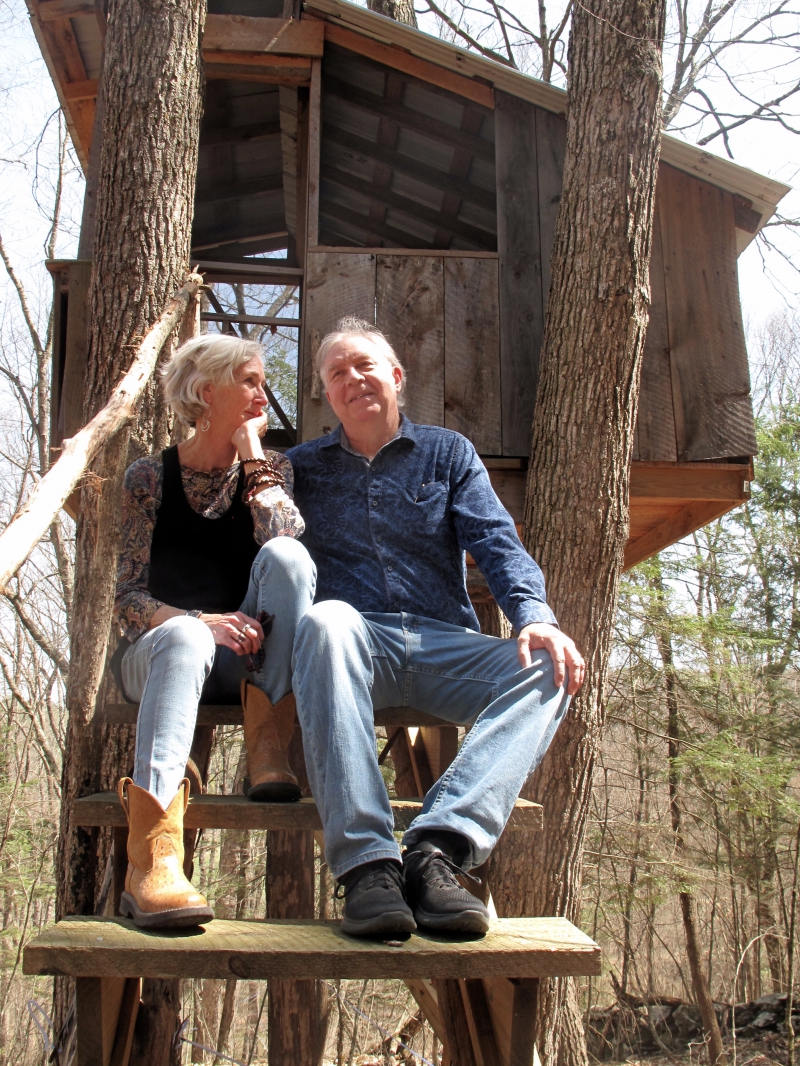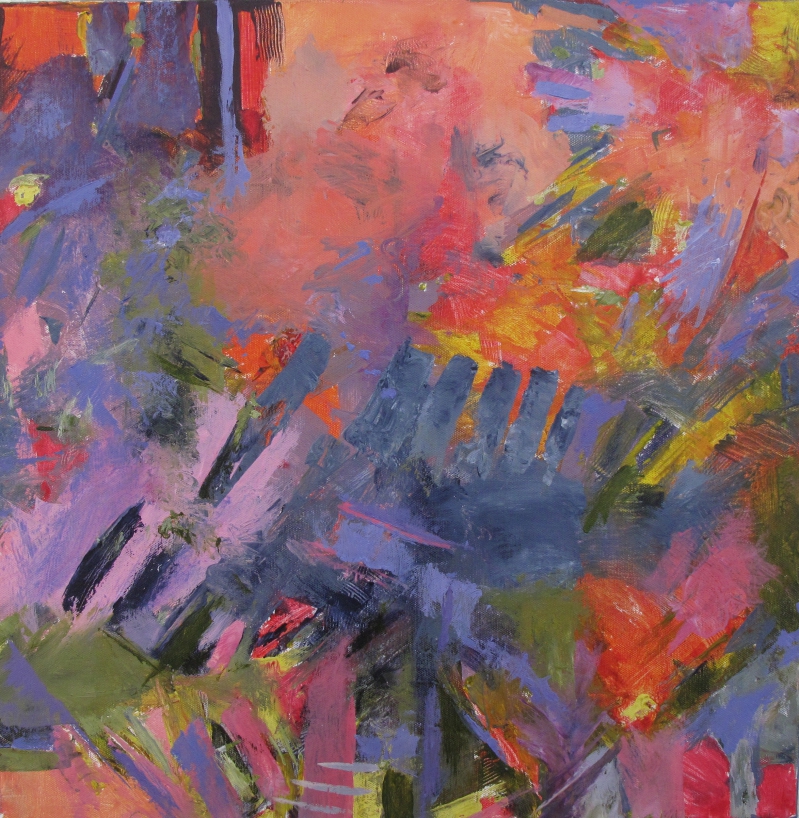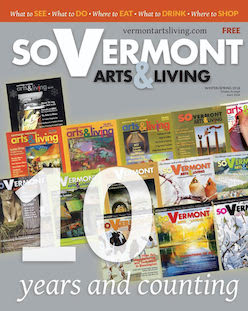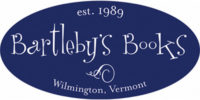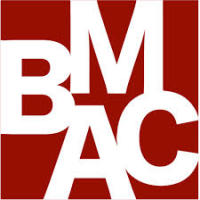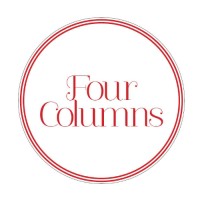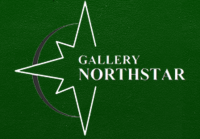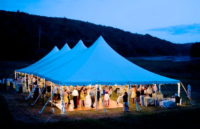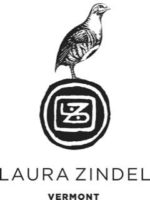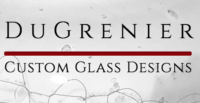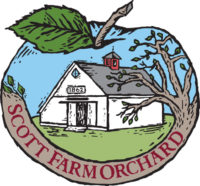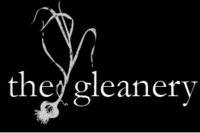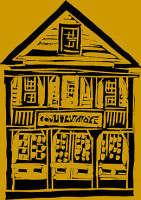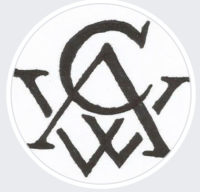“We don’t collaborate,” insists Vermont’s Poet Laureate Chard deNiord, speaking about the working relationship he shares with his wife, the gifted abstract colorist Liz Hawkes deNiord. “We work separately. Liz will sometimes ask for my opinion, but I’m clueless about making paintings.”
And yet.
A visit to the deNiords’ art- and light-filled home, deep in the Westminster West woods, raises the questions: can you draw a line between collaboration and communication? How? When? Why?
Chard’s mother named him Richard, after his father, grandfather, and great-grandfather, but then shortened it somewhat eccentrically. “I’ve had to learn to live with being a vegetable, or burnt,” he says somewhat ruefully.
He and Liz went to the same school in the late Sixties and met in 1970 and have been together ever since.
They met at the Kent School in Connecticut when they were 17. Oddly, their art met in collaboration before they did. One of her drawings was chosen to illustrate one of his poems in the school’s literary journal. The rest is history.
After they had known each other for about a month and a half, they decided to marry. “It seemed like the logical thing to do,” Liz said.
By 18 they had begun their long journey together. Over the years they’ve lived in 19 places. “Wherever we’ve been there has been art,” Liz said. “It’s always been a grounding thing for me.”
By any measure, the couple’s journey has been productive: two architect children, three grandchildren, many advanced degrees, long teaching careers for both, eight books, and who knows how many works of art.
Aside from his job as Vermont poet laureate, Chard is a professor of English at Providence College in Rhode Island. He sometimes writes poems during his commute. Liz is retired after a 38-year career teaching art and special education.
Liz, 65, has two studios on their property: one for her ceramic work and one for her paintings. “Six hours is a good day,” she said.
Chard, 65, gets up at 4 every morning and works in a big armchair in the living room. “For inspiration you just sit,” he said, “You have to be very passive as a poet. You have to wait. And you hope to be struck by lightning.”
Fifteen months ago, a different kind of lightning struck. Liz began a serious health battle that she has now won. Perhaps that’s why a poem by Chard struck her so deeply that some kind of collaboration became essential.
As an example, Chard wrote “Return As Ticket” after a simple, ordinary, everyday experience: he left his wallet at home. By the time he remembered, he was three miles away. He turned his car around and on the way back… everything changed.
“Taking in everything that’s so familiar as suddenly strange through the lens of inconvenience,” he writes. “It’s almost a dream, but not really — more a consequence of accepting my mistake, which allows me in turn to see, if even briefly, so many things I’ve hidden, as if my mind needed to forget to save my heart from the haste that governs my life…”
Liz read the poem in manuscript form as she was looking for a title.
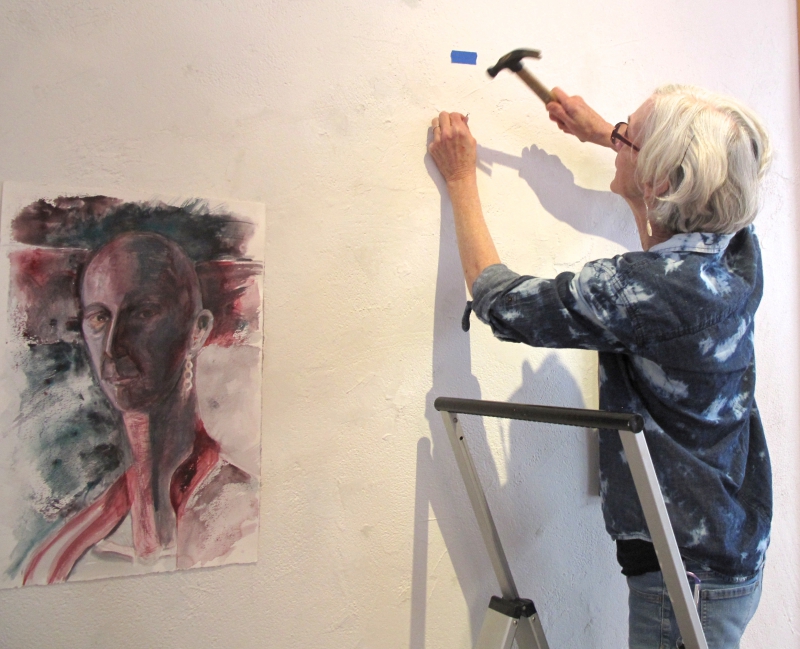
Liz deNiord works on hanging an exhibit next to a self-portrait after hair loss. Her illness has influenced both her painting and in her husband Chard’s poetry.
“It was in Chard’s new poetry manuscript, and I was randomly flipping through it,” Liz said. “Often Chard will read me poems. Piles and piles and piles of rough drafts! Revisions on the computer! This was the final draft and I read it and said, ‘This is what my paintings are about. It encapsulated everything.’ It’s how transitory life is. How ephemeral. That’s what he was seeing. You go downtown and come back and nothing is the same. I was so profoundly moved by that.”
In her artist’s statement for the CX Silver Gallery show, she writes: “The driver, who has simply forgotten a wallet, yet again, retraces his/her path and in returning sees the same familiar things. They are same in name, but not the same, changed by time, day, mood — an essential new perspective for the same things that are vastly changed. In these paintings nothing is different but everything is.”
“I usually paint first and then look for a title,” Liz said. “This one however started with the title for the show. The painting began as a road but I didn’t want to illustrate the poem. That’s the danger of working from a title. I had to go bigger and dig a little more.”
Reworking and changing happens with almost every one of Liz’s paintings. Chard mock-grumbled that he chose a painting of hers for the cover of one of his books, and by the time the book came out, the painting had disappeared.
“I’ll see things I love in a painting and the next day it’ll be all gone,” Chard said. “There’s one painting on the cover of my book that doesn’t exist anymore.”
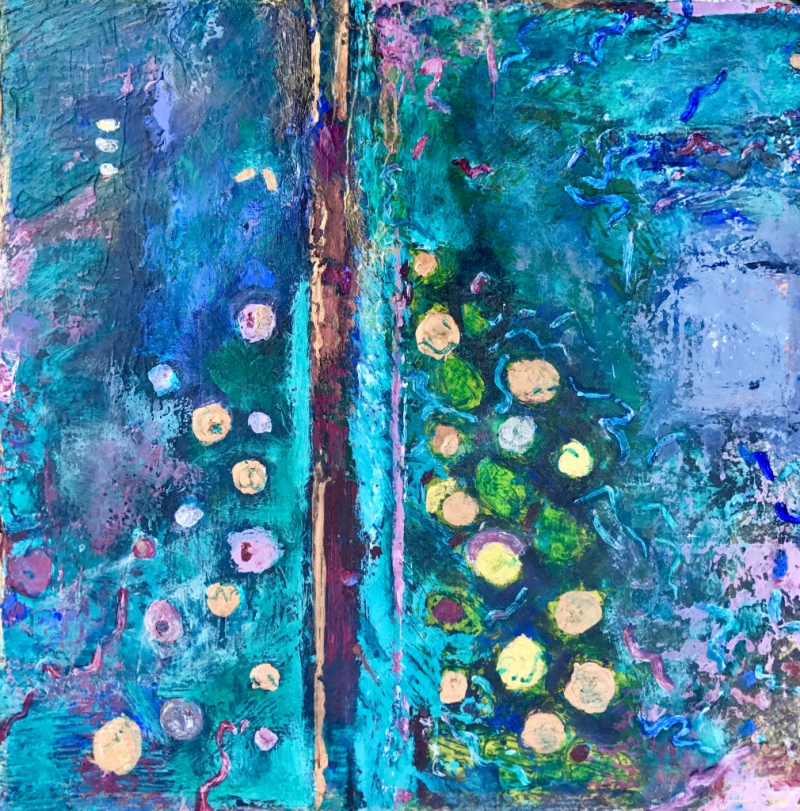
“Ecstasy,” by Liz diNiord, appears as the cover of her husband Chard’s new book, I Would Lie to You if I Could.
For other signs of deliberate collaboration, the couple points to their holiday greeting card. Each year Liz chooses one of Chard’s poems, interprets it as a block print and hand prints each card. She also occasionally writes poems — one is for their anniversary. For the rest of the time, their art-making remains separate although the artistic atmosphere that nourishes both of them remains.
There’s no doubt, for example, that Liz’s illness affected both their work.
“I’m still figuring it out,” Liz said. “I’m definitely doing the same layering and scraping. But there’s a new depth of coloring. I’m doing darker paintings.”
Chard has written poems about Liz being sick, but also more reflective ones about loss and grief. “I have more than a couple of them,” he said.
Writing about personal events is difficult, Chard said.
“Mere personal events don’t always cross over to the reader,” he said. “The challenge with poetry is to somehow create a transpersonal self within the poem — a speaker that crosses over from the poet as the writer, to the reader. Often you have to make stuff up in order for that to happen. Or write in a new way about something as old and as huge as grief.”
“Chard says that poets lie to tell the truth,” Liz said. “Things are altered.”
“Truth is a funny thing for poets,” Chard said. “There’s a nonfictional truth — what actually happened — and truth you make up in order to tell a truth you can’t tell as a literal truth. Look at the myth of Orpheus. It’s a total lie about him going to the underworld, but it’s a huge truth about love and loss. Myth means story in Greek. Myths are what we live by.”
In the end, they appear to endlessly inspire one another.
“I’ve written a lot of poems about marriage, love, relationships, time, illness,” Chard said.
“And some of the times he reads me a poem and it just lifts me up,” Liz said. “It’s an exalted experience.”
“And I’ll do that with the paintings,” Chard said.
“It’s a springboard,” Liz said. “Everything we have in our lives as artists, everything informs. It’s distilled experience that you bring to the canvas or the paper.”
Artistic cross-pollination happens all the time, but it becomes trickier to track in marriages where the artists are skilled practitioners in separate mediums — hers being paint, of course, and his being language.
Liz’s new show, Fifth Season, is at Crowell Gallery at Moore Public Library in Newfane through May 31 with an artist reception and poetry reading by Chard on Friday, May 25 at 3:30 p.m. In addition, she will be mounting a show, Notes From the Universe, at Next Stage in Putney from mid May through August with an artist reception and poetry reading May 19. Chard’s latest book, “I Would Lie to You if I Could: Interviews with Ten American Poets,” was released in May. Cover art for this new book, published by University of Pittsburgh Press, is Liz’s painting “Ecstasy.”


